A Reddit user recently posted a photo of a strange conical copper object found in southeastern Iowa, sparking widespread curiosity.
What is this conical copper object found in SE Iowa
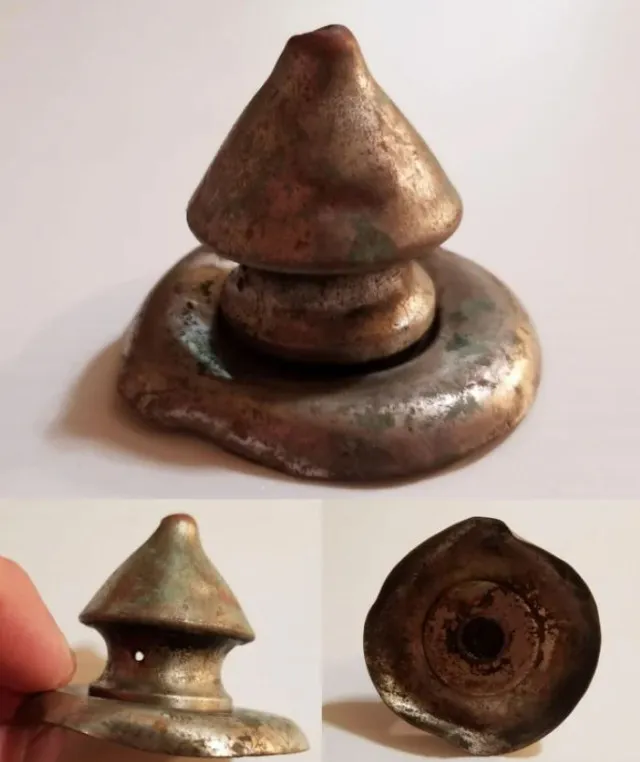
The user shared the image with the caption: “This conical copper thing found metal detecting in SE Iowa!”
The post quickly caught the attention of Reddit users, who eagerly speculated on its purpose.
The user’s detailed description of the object
The Reddit user explained that they discovered the object while metal detecting at a homesite dating back to around 1900-2011.
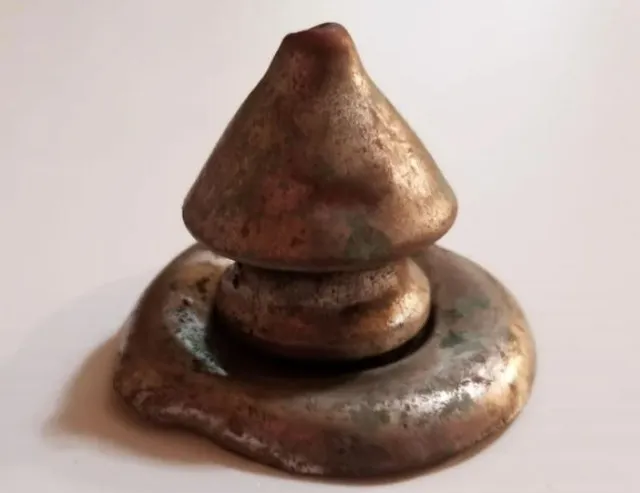
The object was buried approximately 5 inches underground. It resembled a copper penny in sound, and the user believed it to be copper, although unsure whether it was plated in nickel, chrome, or silver.
This conical copper thing found metal detecting in SE Iowa! More info in comments.
byu/Baidon inwhatisthisthing
The user provided measurements: the cone is about 1¾” from tip to base, with a 2½” wide base.
The cone features two holes drilled at roughly the 10 and 2 positions when laid flat. Additionally, the top of the cone spins in both directions while the base remains stationary.
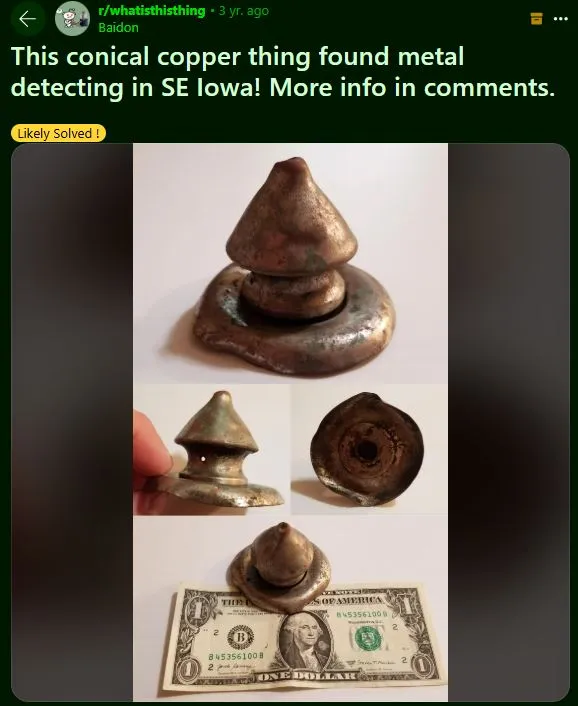
The user wrote:”It’s roughly 1¾” from cone-tip to round base, while the base is exactly 2½” wide. The cone itself has two holes drilled at roughly the 10 and 2 positions when laid flat on it’s base and looking directly down at it. Also, as poorly exemplified here, the top cone spins both directions while the base can stay stationary.”
Using a balance scale, the object was estimated to weigh approximately 45.36 grams (roughly the weight of 8 quarters). The user encouraged anyone with more questions to ask and promised to provide more information or pictures.
Speculations About the object’s purpose
Reddit users offered various theories about the object’s function.
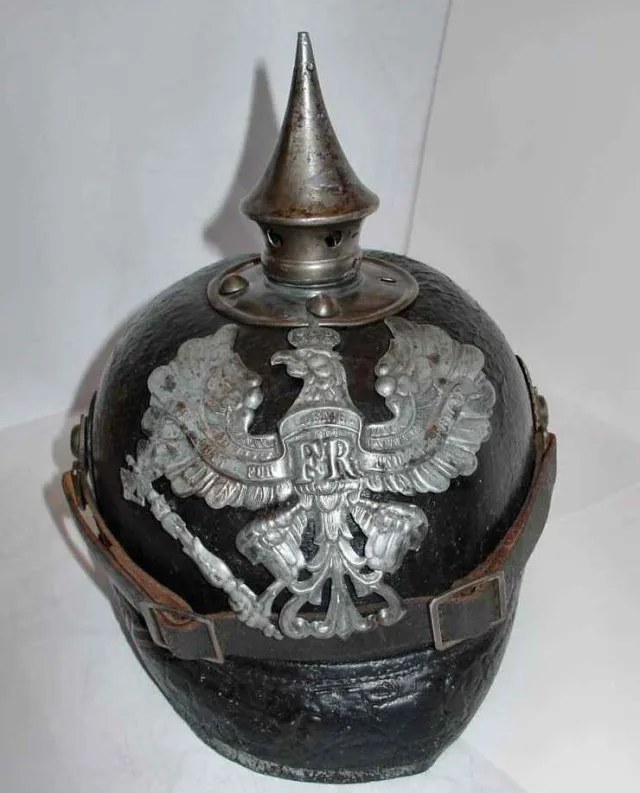
Some suggested it could be part of an oil lamp, with the conical shape being a middle piece where the fuel exits.
Others speculated it might be a finial, a decorative top for a lamp.
One person said: Almost looks like the middle piece of an oil lamp where the fuel comes out.
A second wrote: Looks like a finial to a lamp. Is the interior threaded?
While a third commented: Looks like a lid for an incense burner to me.
Another added: Is the hole in the bottom threaded? It could be a drawer knob.
Someone else said: It looks like a finial, likely nailed to a wooden part through the holes. The larger part turns because it was made as a separate piece. That’s while the nails are in the upper part, so it doesn’t spin and that will hold the lower piece in place.
Answer: Pickelhaube. A militairy helmet, like the Germans had pre-ww1
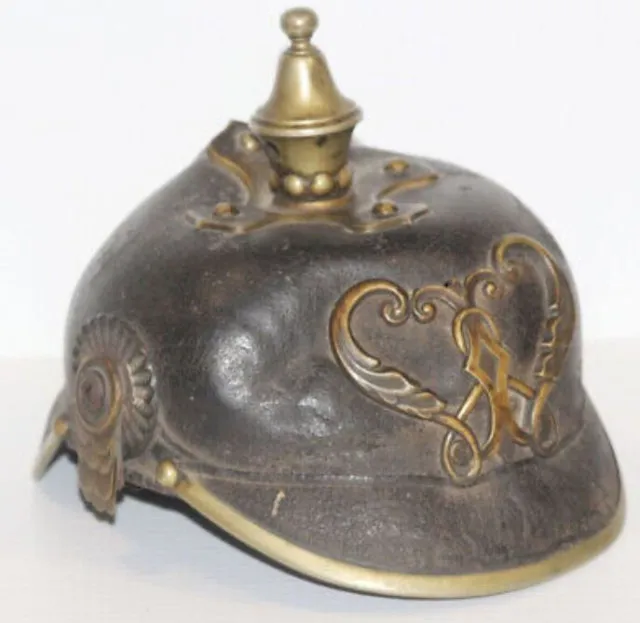
The Pickelhaube: A historic German Military Helmet
The Pickelhaube, a distinctive spiked helmet, is an iconic symbol of German military history.
Originally introduced in the 1840s by King Friedrich Wilhelm IV of Prussia, it became a hallmark of the Prussian military and later, the entire German Empire.
Its unique design and historical significance continue to fascinate historians and collectors alike.
Design and purpose
The Pickelhaube was crafted primarily from leather, featuring a prominent spike on top.
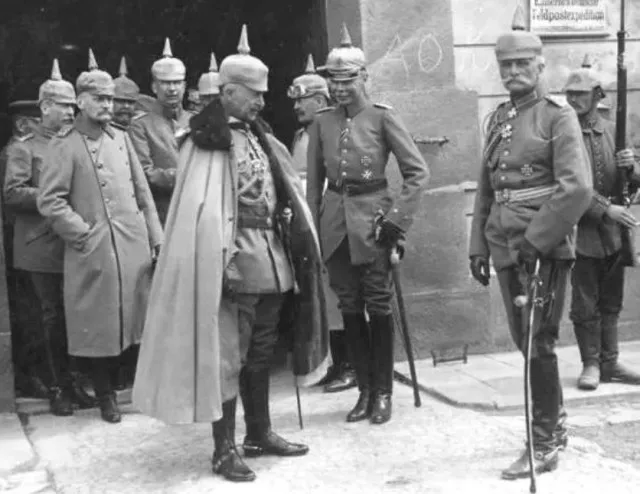
People initially thought this spike deflected sword strikes, though its practical protective value was minimal.
The helmet often included brass or metal fittings, chin straps, and decorative insignias representing the wearer’s rank and unit.
Despite its intimidating appearance, the Pickelhaube offered little actual protection in combat, particularly against modern artillery and gunfire.
First adopted by the Prussian military, the Pickelhaube quickly became a symbol of German militarism and efficiency.
By the late 19th century, its use expanded to other German-speaking regions and even influenced helmet designs in countries like Russia and Sweden.
H0wever, its shortcomings in protection led to its replacement by the Stahlhelm, a steel helmet better suited for trench warfare.